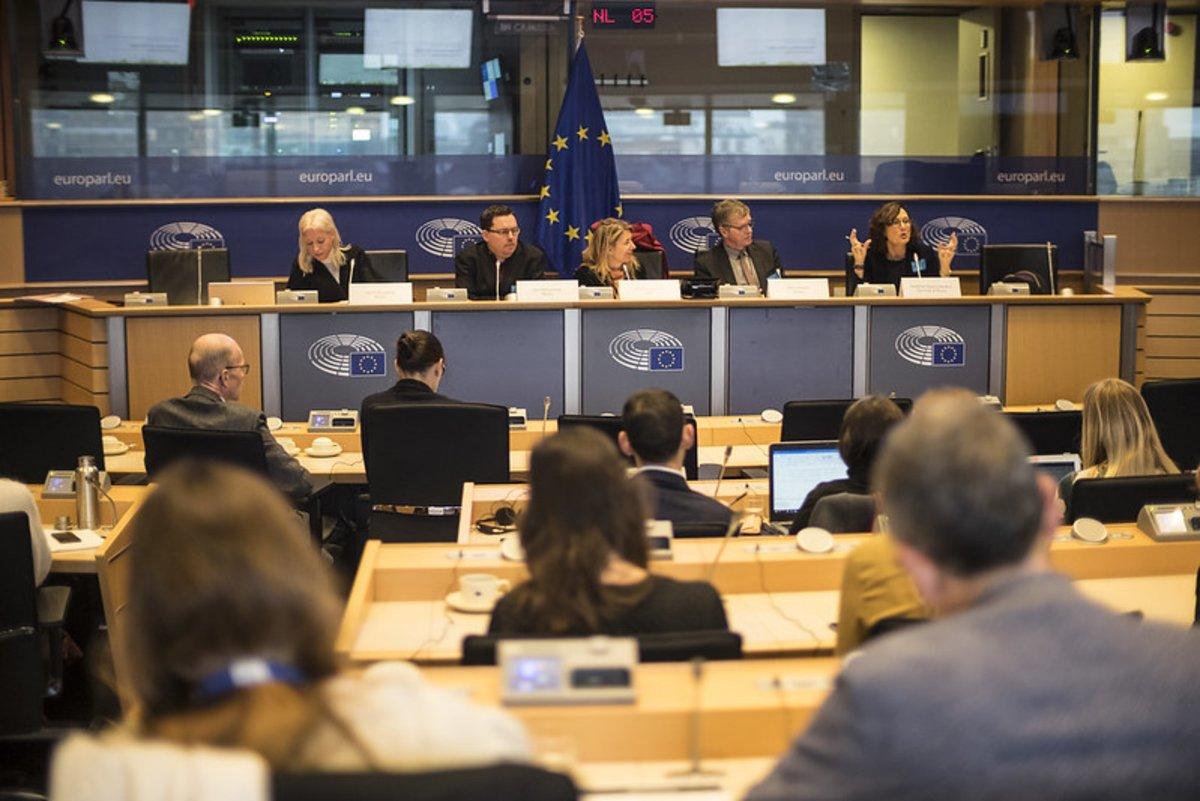Author: Bartosz Brzeziński
Media advisory: Today, the Swedish Foundation for Strategic Environmental Research, Stockholm Environment Institute and the Institute for European Environmental Policy are proud to announce a policy dialogue on solutions for advancing the European circular economy through the European Green Deal, that will be unveiled on 11 December.
A report from the European Environment Agency recently identified textiles as the fourth largest cause of environmental pressure on primary raw materials and water from EU consumption (after food, housing and transport). How might the environmental footprint of imported products be incorporated into a circular economy approach for the EU?
“Our research shows that to stay within planetary boundaries, by 2050 an average European will have to reduce by 80% the amount of natural resources they currently use for nutrition, housing, mobility and lifestyles. The upcoming Green Deal should therefore include a comprehensive European policy for sustainable consumption that complements the existing circular economy package and aims at the 80% reduction in per capita material footprint by 2050.”
— Céline Charveriat, IEEP Executive Director
The Swedish Foundation for Strategic Environmental Research (Mistra) is pleased to announce the event: “Delivering circular economy through the European Green Deal: policy solutions for high-impact sectors such as textiles,” taking place today at the European Parliament in Brussels.
“We have a fully packed agenda with high-level expertise on circular solutions. EEA just launched its report stating that we are sleepwalking towards a catastrophe. There is no sign of improvement, and the curve is getting steeper. This is why we need circular economy,” said Sirpa Pietikäinen, MEP, ECON Committee.
Speakers include Hans Bruyninck, Executive Director of the European Environment Agency, Sirpa Pietikäinen and Pär Holmgren Members of the European Parliament, Pascale Moreau from H&M, Sigrid Barnekow, Chief Executive Officer, Mistra Future Fashion and Åke Iverfeldt, Chief Executive Officer of Mistra.
“As stated in the EU waste legislation, an extended producer responsibility to ensure separate collection of textiles will be applied in all member states by 2025. Currently, several members states have different approaches. H&M Group hope the new EU waste legislation will facilitate the harmonisation of the take back scheme at the European level, while being incentive-based and acknowledging existing in-store garment collecting systems,” said Pascale Moreau, Sustainability Department H&M group.
Through events like this, Mistra aims to connect the findings from across its research programmes to important junctures in decision-making in the EU.
“European collaboration is needed to solve the environmental problems we face. Mistra pays attention to decisions made in the EU because they have an important influence on our mission: to develop strategic environmental research, thereby helping to solve key environmental problems while fostering Swedish competitiveness and sustainable development.”
— Åke Iverfeldt, CEO of Mistra
Ms Sandrine Dixson-Declève, Co-President of Club of Rome and today’s keynote speaker said: “To meet today’s climate emergency and biodiversity tipping points head on, we need both a low-carbon energy transition and a robust circular economy approach. A circular economy model must start with upstream considerations across all sectors of the economy. This entails reduction in consumption, followed by design imperatives and end of pipe solutions such as recycling and reuse.”
This event, organised for the Swedish Foundation for Strategic Environmental Research (Mistra) by the Institute for European Environmental Policy (IEEP) and Stockholm Environment Institute (SEI), explore policy solutions for advancing the European circular economy. Researchers, business representatives and policymakers will discuss on how to seize this critical opportunity.
“One of the most efficient tools is via public procurement procedures in order for governments at all levels being able to lead the transition, and put the money where their mouth is,” said MEP Pär Holmgren.
Date: 5th of December from 9:00 am – 11:00 am.
Place: European Parliament, room 6Q1, Brussels.
Full agenda and speakers can be found here.
For interviews, please contact:
Ylva Rylander, Press Officer, Stockholm Environment Institute (SEI
ylva.rylander@sei.org +4673-150 33 84
Bartosz Brzeziński, Communications Manager, Institute for European Environmental Policy (IEEP)
bbrzezinski@ieep.eu +32(0)2 738 7484


